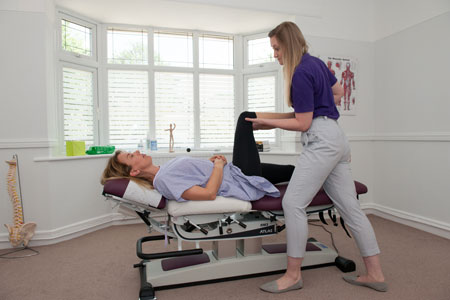
Sports Injury

Our physiotherapy, chiropractic and sports massage team at Back to Health are trained to treat diagnose and treat minor sports injuries and specific problems which arise from sports injury. Almost any part of the body can be injured, including the muscles, bones, joints, tendons and ligaments. The ankles and knees are some of the most commonly affected areas. Sprains and strains are the most common type of sports injury, with symptoms including pain, swelling, bruising and tenderness around a joint or in a muscle, or difficulty moving the affected body part. Other sports injuries include back pain, bone injuries, hamstring injuries, head injuries, heel pain, joint inflammation, knee pain including knee ligament damage, shoulder pain and skin injuries. Sprains including groin & thigh sprains & strains including hamstring and calf strains are amongst the most commonly occuring minor sports injury.
The clinical team at Back to Health will use different manual therapy treatment modalities to treat your injury.
What is the cause of my sports injury?
Amateur sports enthusiasts and professional sports men and women are all likely to suffer from sports injuries. They can have many causes which need to be identified specifically by a trained MSK professional. Pain is a warning and shouldn't be ignored - painkilling drugs may temporarily relieve or mask systems but it is best to diagnose and treat the real cause of an injury. Failing to receive the appropriate treatment promptly and continuing to overuse the injured area may prolong the healing process and result in a chronic injury and the shortening of a promising career. Many top sports teams and athletes have traditionally used physiotherapy and sports massage to as part of their medical care are now also using chiropractic.
Each case is different - it may be the result of poor warm up and stretching techniques, years of poor posture or a previously undetected spine or joint problem. It can be due to unsuitable equipment, overtraining or the wrong training technique. As part of your assessment your clinician would identify what is causing your injuries and is holding you back from reaching your potential.
Did you know?
The Back to Health chiropractic team have over 60 years of experience between them. That’s a lot of bad backs they’ve helped to get better!





